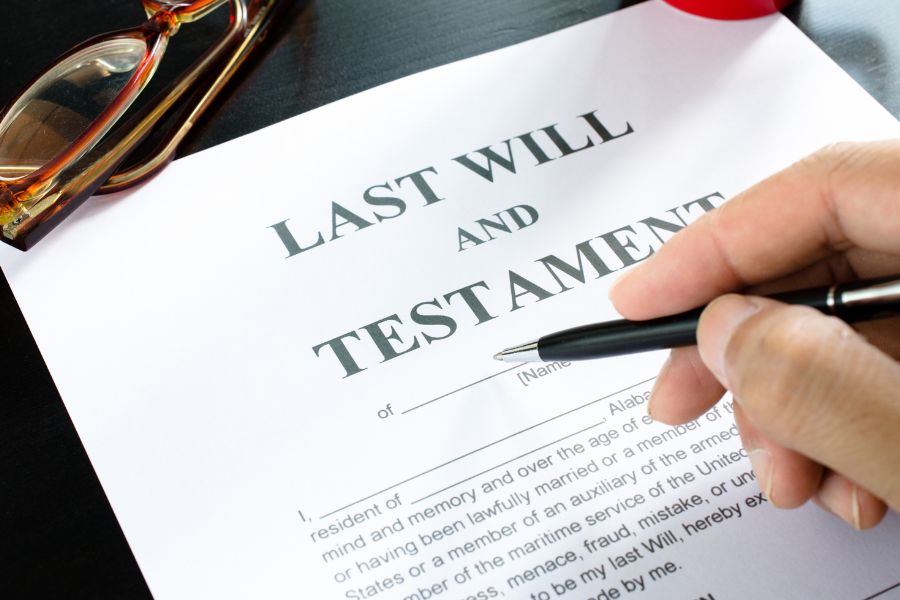Who will your family choose to host Thanksgiving this year? Even more importantly – who…

FAQ No. 1: When Do I Need a Will?

It’s a new year – a good time to focus on the forest through the trees and answer my most frequently asked question. It’s also a time to remember and reexamine our highest callings, so I devoted some serious time and thought to how I can best help my clients.
Perhaps it’s also a time to use each other as touchstones to help us get back in touch with our core values as professionals. So I welcome your feedback. And allow me to encourage you to write about your top priorities and number one questions, too.
Imagine how much we could learn from each other – and about ourselves.
How can I best help my clients?
In helping my clients protect their assets and plan secure futures for their loved ones, I keep their needs foremost in my mind. That principle translates into these goals:
- To make the estate world more accessible and convenient to people who have busy lives. If you’re looking to create your will or become an executor of an estate, I understand you’ll be taking this on in addition to the other responsibilities in your life. I try to do everything I can to make these tasks easier for my clients – like meeting by video, making home visits, or offering the choice of my Manhattan or Long Island office.
- To be sensitive to my clients’ needs and be a good listener. It can be hard to talk about issues around death. My background in psychology and the work I did to contribute to an anthology about mortality enable me to help clients with this.
- To offer suggestions to clarify my clients’ wishes and help them feel comfortable with their decisions. Worries that someone will be unhappy with their inheritance, or contest the probate proceeding, can be planned for and addressed in advance.
- To develop a plan tailored to each client’s circumstances. There may be an individual who needs an extra layer of protection in an estate plan, such as a child with special needs or adult with a drug addiction. I strive to help my clients identify and discuss these issues, and develop a plan together to give them peace of mind.
FAQ #1: When is it important to create or revise a will?
1. Key life cycle events are natural times to create or reexamine your will.
- Getting married? Drafting a will helps create a safety plan for you and your spouse, and any children either of you have or will have. You should also consider whether to sign a prenup before you marry, and if you choose to do so, which provisions related to spousal rights of inheritance to include.
- When expecting a child, you will want to ensure they’ll be protected and cared for. Creating a will, or revising a current one, is a powerful tool to help you achieve this goal. You should name a guardian to serve as a substitute parent and a trustee to manage the assets if your child receives them.
- After a divorce, it’s crucial to reexamine your will, if you have one, or create one if you don’t. You’ll want to address who will receive what from your estate, as well as who will be the trustee for your minor children if you pass away.
- When planning to remarry, it is important to think about how you want your assets to be used after you pass. Some people want their assets to go first to their spouse to use during their lifetime, and afterwards to their kids – a trust is needed to accomplish this. Some want their step children to receive a share of their assets – the will must direct this. Neither of these outcomes will happen automatically under the law.
- At the unfortunate passing of a spouse, the person left behind is often overwhelmed with grief, as well as logistical issues. Family and friends can assist in many ways. One important way to help is to make sure the surviving individual’s estate is protected and will be distributed according to their wishes.
- Similarly, people’s assets often grow through inheritance after the passing of a parent. Significant asset growth should trigger a review and likely a revision of the child’s estate plan. There may be new assets such as a share in the family business, real estate, or valuable artwork.
2. Every 5 years, you should review your will.
- The law changes, and your attorney must respond to those changes in your estate planning documents to make sure your wishes will still be carried out.
- The people named as executor, guardian, and trustee in your will, and the successors named for each position, may not be appropriate for these roles anymore. They may have passed, become elderly or incapacitated, or you may have grown apart from them.
- You may have moved to another state or even country. If your move is permanent, it is usually advisable to have a new will drawn up by an estate attorney well versed in your new jurisdiction’s laws.
- It’s pretty impossible to list every life event that should prompt a will review. Why? Because life is messy and beautifully unique. So the 5 year default rule keeps you covered.
People often feel at loose ends when it comes to legal matters. But with estate issues, getting started really is half the battle.
Getting Help
Whatever stage you are at in the process, from estate planning to probate, the Law & Mediation Office of Bracha Etengoff is here to offer guidance and support.
Call us today for your consultation at (347) 640-0993. We can meet with you by video or at a location most convenient for you, whether it’s our Manhattan or Long Island office, or your home or office.
Subscribe
Login
0 Comments
Oldest




